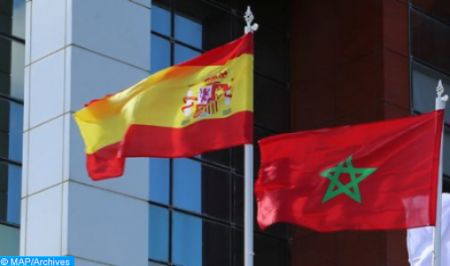Morocco-Spain: A Rereading of Common History is Necessary to Move Forward Together for Mutually Beneficial Future – Expert –
To truly move forward together for a mutually beneficial future, Spain and Morocco must first take a hard look at their common splintered past, full of tragedies and pain, but also of promises and hopes, stresses international expert in strategic studies, Lahcen Haddad. “Rereading history does not mean determining who was wrong and who was right. Instead, the point of such an endeavor is to establish mechanisms to mutually understand well documented events, through careful and abstract historiographic writing,” Haddad notes in an article published in the press. “This reading means neither silencing bothersome texts, events or gestures, nor finding excuses for the tragedies of the past. What matters is exploring the depths of history– with all its tragedies, sorrows, and tragic events– and reconciling present generations on both sides with it. What matters is laying the foundations for a complex and critical dealing (in the philosophical sense of Edgar Morin and Daniel Inerarity) with the remnants, effects and continuous presence of the past in the present and the future,” he adds. According to Haddad, “the two sides must carry out a philosophical, historical, and conceptual deconstruction of ready-made ideas, deeply-rooted views, stereotypes, and rhetorical protocols towards each other”. “If carried out in good faith, this would help create a fertile ground for critical debate about their common heritage, their tragedies, their troubled present, and about the uncertain hopes and promises of the future of their relations,” he insists. In this article, which presents a double reading of the main facts that have marked the history of Moroccan-Spanish relations, Haddad believes that “these alternative narratives of historical events illustrate that relations between Morocco and Spain are dominated by conflicting and contradictory interpretations”. “Each has its own self-preserving narratives and stories. Ready-made ideas, stereotypes and deeply-rooted opinions about the other have been entrenched on both sides since the Middle Ages,” he explains. “The irony is that trade and economic relations have become highly developed, and social and cultural relations are deep between the two peoples, but political dialogue remains sterile and is overcome by a narrow view of internal and external interests and tactical calculations,” he notes. Haddad stresses that “an objective and academic rereading of shared history must be carried out to steer away from ready-made ideas and provide space for an honest account of facts in the light each camp’s (hopefully) deconstructed (in the Derridean philosophical sense) and critically unsettled readings and intentions”.

